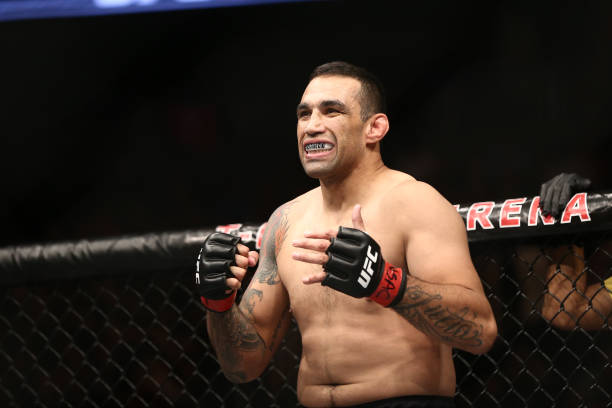UFC Brazilian Jiu-Jitsu Fighters
UFC Brazilian Jiu Jitsu Fighters, UFC Brazilian Jiu-Jitsu (BJJ) has long been a cornerstone of mixed martial arts (MMA), especially in the Ultimate Fighting Championship (UFC). Originating from Brazil, this martial art focuses on grappling and ground fighting, emphasizing technique and leverage over brute strength. Within the UFC, BJJ practitioners have carved out a significant presence, showcasing their skills and influencing the evolution of the sport.
Table of Contents
Toggle
One of the most notable aspects of Brazilian Jiu-Jitsu fighters in the UFC is their ability to dominate fights through superior ground control and submission prowess. Fighters like Royce Gracie, the inaugural UFC champion, brought BJJ into the mainstream by demonstrating its effectiveness against various martial arts disciplines. Since then, numerous BJJ practitioners have risen through the ranks, leaving a lasting impact on the sport.
Click Here to Read About Brazilian Fighters in UFC.
Top 16, UFC Brazilian Jiu Jitsu Fighters
UFC Brazilian Jiu Jitsu fighters have left an indelible mark on the UFC, showcasing the effectiveness of their martial art in the realm of mixed martial arts. Their technical proficiency, strategic acumen, and relentless pursuit of victory continue to inspire both aspiring fighters and seasoned veterans in the ever-evolving world of MMA.
- Roger Gracie – Former Midweight Fighter
- Ronaldo Jacare Souza
- Marico Pee Dee Pano Cruz
- Rodolfo Vieira
- Mackenzie Dern
- Demian Maia
- Charles Oliveira
- Brian Ortega
- Nate Diaz
- Gilbert Burns
- Paddy Pimblett
- Tom Aspinall
- Erin Branchfield
- Aljamain Sterling
- Brendan Allen
- Fabricio Werdum – Former UFC Heavyweight Champion
Brazilian Jiu-Jitsu fighters have left an indelible mark on the UFC, showcasing the effectiveness of their martial art in the realm of mixed martial arts. Their technical proficiency, strategic acumen, and relentless pursuit of victory continue to inspire both aspiring fighters and seasoned veterans in the ever-evolving world of MMA.
Those are top 16 UFC Brazilian Jiu Jitsu Fighters.
Who has the best BJJ in UFC 4
Fabricio Werdum, a former UFC Heavyweight Champion and a four-time Brazilian Jiu-Jitsu World Champion, showcases exceptional submission skills that position him prominently in the rankings. With a remarkable 98 for submission offense and bottom control, coupled with an impressive 99 for submission defense, Werdum demonstrates mastery in both executing and defending against submissions in the octagon.

Is Nate Diaz good at Jiu-Jitsu, Diaz, following years of dedicated training, achieved the prestigious rank of Brazilian Jiu-Jitsu black belt under the guidance of Cesar Gracie. This significant milestone coincided with his upcoming bout against fellow Brazilian Jiu-Jitsu black belt Jim Miller, marking a profound moment in Diaz’s martial arts journey.
Who is the best male Jiu-Jitsu fighter?
Roger Gracie stands out as a highly distinguished figure in the world of Brazilian Jiu-Jitsu, boasting an impressive track record with 16 medals in international tournaments, including multiple silver medals. His remarkable achievements include being the inaugural competitor to secure victories over all opponents in the ADCC tournament and the first to clinch three gold medals in the open weight division.
What is a jiu-jitsu fighter called?
Judoka, In the world of martial arts, terminology can sometimes blur the lines between different disciplines, leading to confusion among practitioners and enthusiasts. One such example is the interchangeability of terms like “Jiu-Jitsu practitioner” and “Judoka.”
The term “Judoka” is commonly associated with practitioners of judo, a martial art developed in Japan in the late 19th century by Jigoro Kano. Judo, which translates to “gentle way,” emphasizes throws, joint locks, and grappling techniques to subdue opponents. Over the years, judo has evolved into both a sport and a method of self-defense, with practitioners known as Judoka.
However, the roots of judo trace back to jujitsu or jiu-jitsu, an ancient Japanese martial art that focuses on close combat and grappling techniques. Jujitsu predates judo and served as the foundation for many modern martial arts, including judo, Brazilian Jiu-Jitsu, and others.
What is a jiu-jitsu fight?
Brazilian Jiu-Jitsu, a modern martial art with deep historical roots, has gained widespread recognition for its unique approach to combat. Unlike traditional martial arts that emphasize striking techniques, Brazilian Jiu-Jitsu focuses primarily on ground fighting and grappling maneuvers. Utilizing principles of leverage, angles, pressure, and timing, practitioners aim to control and submit their opponents without resorting to violence.
What sets Brazilian Jiu-Jitsu apart is its emphasis on technique and strategy over brute strength, making it accessible to people of all ages and physical abilities. By understanding the intricacies of human anatomy and mastering various submission holds and escapes, practitioners develop not only physical prowess but also mental agility and discipline.
As the popularity, of Brazilian Jiu-Jitsu continues to grow worldwide, its influence extends beyond the realm of martial arts, with applications in self-defense, fitness, and even therapeutic practices. It stands as a testament to the enduring legacy of ancient martial arts and their ability to evolve and adapt to modern times.
What is a Jiu-Jitsu leader called?
In the dynamic landscape of Jiu-Jitsu, leaders are recognized by various titles reflecting their cultural origins and lineage. From instructor to sensei, professor to coach, the terminology used to address Brazilian Jiu-Jitsu mentors is diverse and indicative of their heritage.
These titles signify respect, experience, and mastery within the art, honoring the rich traditions passed down through generations. Whether referred to as master, teacher, or mestre, each designation carries the weight of tradition and expertise, underscoring the multifaceted nature of Jiu-Jitsu instruction and the global community it encompasses.
How many years to master Jiu-Jitsu?
Mastering Jiu-Jitsu is a journey that demands dedication, perseverance, and a deep understanding of the art’s intricacies. While the path to achieving a black belt differs for each practitioner, there’s a general timeframe that many adhere to.
On average, it takes roughly 8 to 12 years of unwavering commitment and consistent training to reach the coveted black belt rank in Brazilian Jiu-Jitsu. This journey is marked by progression through various belt ranks, starting with the white belt phase, typically lasting 1 to 2 years. Subsequent advancement through the blue belt stage, averaging 2 to 4 years, further honed skills and deepened understanding.
Ultimately, the journey to mastery in Jiu-Jitsu is not defined solely by the attainment of a black belt but by the continuous growth, learning, and refinement of one’s skills both on and off the mat. Each practitioner’s journey is unique, shaped by their dedication, discipline, and love for the art.
What is Brazilian Jiu-Jitsu known for?
Brazilian Jiu-Jitsu, renowned for its strategic prowess and technical finesse, emphasizes ground fighting as a means to neutralize adversaries. By leveraging superior positioning and employing precise techniques, practitioners adeptly navigate the complexities of combat, regardless of size or strength differentials.
Grounded in the art of submission holds, such as joint locks and chokeholds, Brazilian Jiu-Jitsu empowers individuals to overcome physical disadvantages and emerge victorious. Through disciplined training and mastery of grappling techniques, practitioners harness the art’s transformative potential, transcending brute force to achieve mastery on the mat.
All above article is about to UFC Brazilian Jiu Jitsu Fighters.





